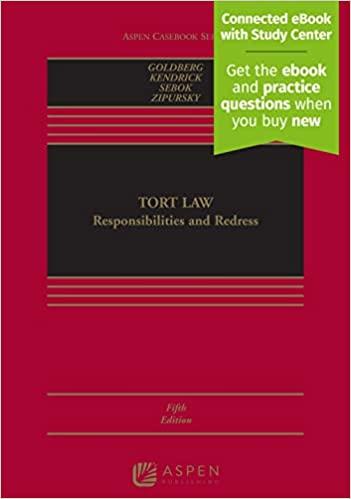Question
In Wise v. State, the trial court allowed the admission of several pictures of child pornography that police discovered on the hard drive of his
In Wise v. State, the trial court allowed the admission of several pictures of child pornography that police discovered on the hard drive of his tower computer over the defendant's objections that, in substance, the pictures were not relevant. The forensic investigator testified that she could not tell when the pictures were added to the computer's hard drive or when, if ever, they had been viewed or accessed and that the pictures were in the unallocated part of the hard drive. The defendant purchased the computer secondhand at a flea market. With respect to the accountants of child pornography that were related to the pictures on the free space of the hard drive, the appellate court:
A. reversed his convictions on those counts because there was no proof that the pictures were in any way related to the defendant; they were not relevant evidence, and should have been excluded.
B. reversed his convictions related to the pictures on the unallocated section of the hard drive because the proof of their presence made it no more likely that he had taken the pictures himself.
C. upheld the convictions for the reason that sufficient relevancy existed because the pictures were on the defendant's home computer and were relevant to show that he knowingly possessed child pornography.
D. upheld the convictions because sufficient relevancy existed based on the fact that the pornographic images were on the defendant's computer, and he is charged with having knowledge of their presence.
Step by Step Solution
There are 3 Steps involved in it
Step: 1

Get Instant Access to Expert-Tailored Solutions
See step-by-step solutions with expert insights and AI powered tools for academic success
Step: 2

Step: 3

Ace Your Homework with AI
Get the answers you need in no time with our AI-driven, step-by-step assistance
Get Started


